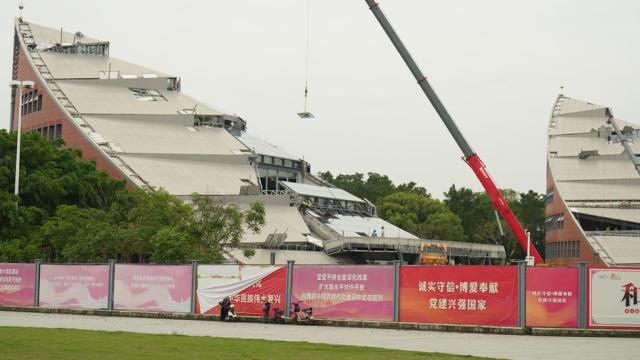Ren Wenbing finds it difficult to leave the abandoned brick shell that formerly housed a prosperous factory in Dongguan, China’s industrial center.

In an effort to save expenses, the company’s owner relocated production to Southeast Asia. Mr. Ren claims that he is entitled to redundancy pay in excess of 80,000 RMB ($11,000; £8,800), which may take years to accrue.
Mr. Ren’s sorrow extends beyond the demise of a furniture company. The demise of China’s once-unstoppable economy, which is making it more difficult for millions of workers to obtain employment, grieves him.
Not enough is created in China anymore for guys like him.
During US Treasury Secretary Janet Yellen’s recent visit, the predominant theme was the accusation made by the West that China is producing excessive amounts of goods. She chastised Beijing for “unfair economic practices,” saying that it produces more than the world could consume or needs.
The “Made in China” label that appears embroidered, stitched, or stamped on t-shirts, coffee tables, and televisions in countless homes worldwide is evolving. It is currently the central component of the solar panels driving Europe’s renewable plans and the electric cars flooding the country. And the West is concerned about that.
A global recession, tight COVID lockdowns, and growing trade tensions with the US have caused several manufacturers who previously flocked to China to go elsewhere. The amount of foreign capital in the nation is at a 30-year low.
“We are exporting to the UK, Belgium, and Germany, mostly European countries, but we also export to Africa, Australia, South America, North America, and South East Asia,” salesman Yan Mu states while showcasing the company’s energy storage batteries.
This is one of the booths at an exhibition in a renovated and repurposed steel plant on the outskirts of Beijing, hosted by hundreds of green energy storage firms.
